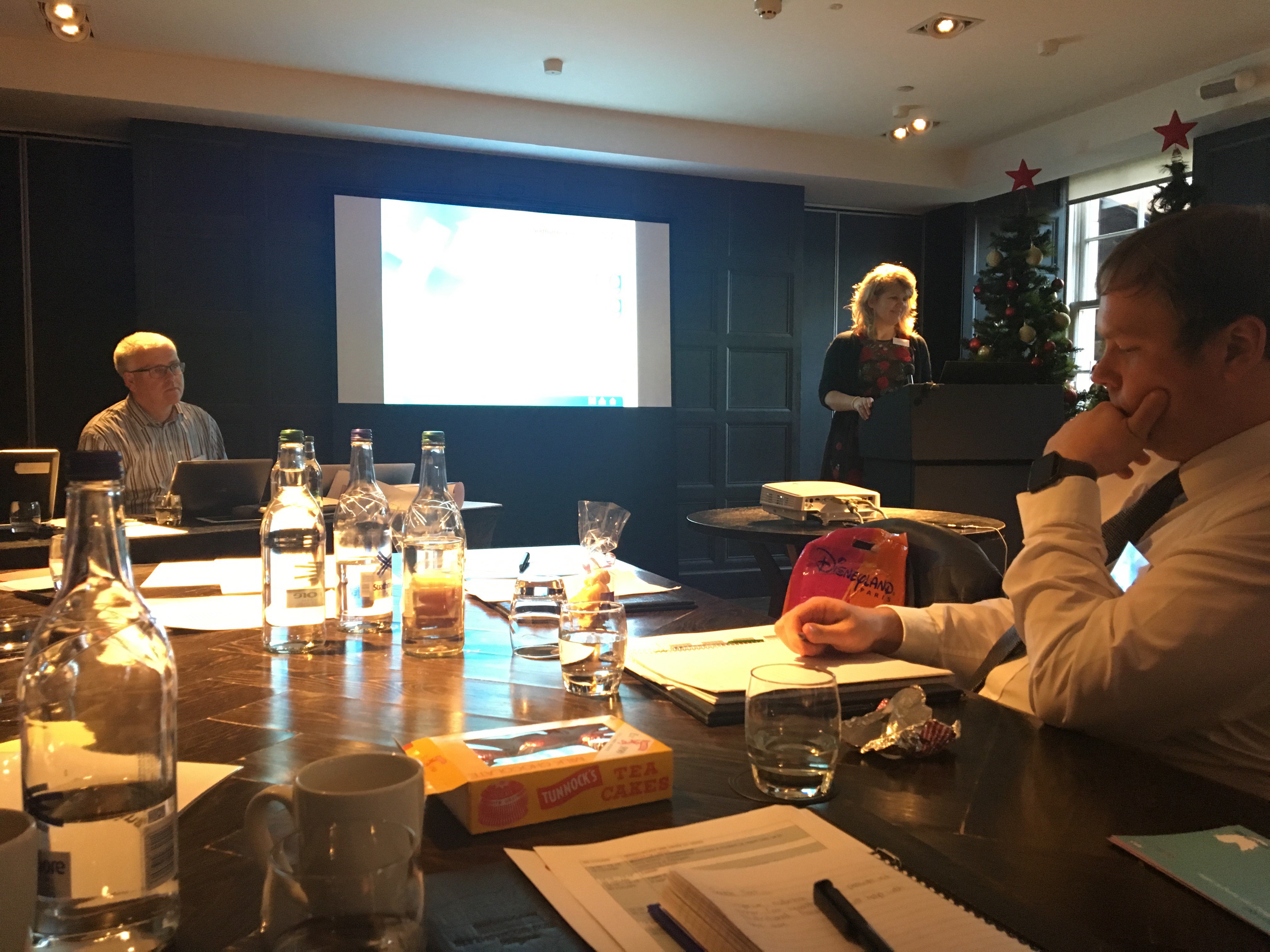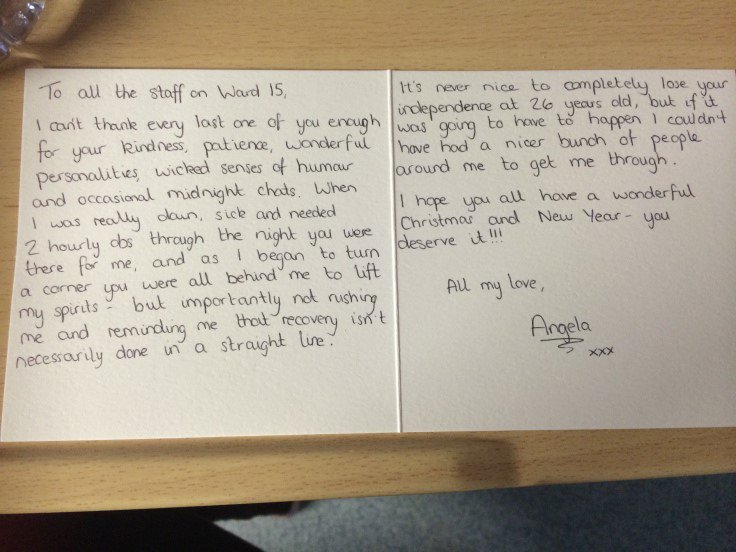Joining the HIP QIP team
Through my involvement with Fab Change Day and the Academy of Fabulous NHS Stuff Stuff (Meeting a Geordie legend, Fab changes across Northumbria and Making my own fab change day pledge), I met a brilliant team at NHS Northumbria who are involved in Scaling Up Improvement. With real synergies existing between my day job - working with the team at Orange Bus to improve services through channel shift and digital transformation - and their own aims of identifying strong areas of NHS service and replicating those across the country, the team invited me on board as a Patient Leader to help bring a different perspective to a team committed to striving for excellence in patient care.
Scaling Up Improvement is an £8 million improvement plan funded by The Health Foundation that supports project teams to take successful health care improvement interventions and approaches and deliver them on a larger scale. The aim is to make demonstrable improvements in the delivery of health care and / or the way people manage their own health care through the redesign of process, practice and service delivery models.
The programme I’ve joined in particular is HIP QIP - a safety collaborative across six UK NHS hospital trusts which aims to improve care and reduce mortality for patients following hip fracture via a multidisciplinary pathway approach.
Joining a programme already in action - it runs from April 2016 through to late 2018 - I was keen to attend my first event and learn more about the initiatives underway to improve hip fracture care. That first event happened to be the Measuring Patient Experience learning event, taking place in Glasgow on 1st December.
The trusts open up
The day started with the six NHS trusts in attendance (from South Tees, Glasgow, Gloucester, Weston Super Mare, Swindon and Northumbria) each presenting on their progress since the last HIP QIP gathering: successes, challenges and what they’re most proud of.
Successes across trusts included better control of infection, improved communication, and recruitment of specialist nutritionists.
Challenges included recruitment, flow of patients through certain hospitals when bed space is at a premium, and ensuring understanding of the aims of the programme across a wider stakeholder group.
Elements teams were most proud of included new warfarin protocols and supply of improved documentation. Swindon, in particular, had been very successful in communicating their launch event and gaining the attention of local press (http://www.swindonadvertiser.co.uk/news/14920562.Hip_fracture_patients_to_be_at_cutting_edge_of_treatment_in_new_initiative/), providing a fantastic example for other trusts on getting the general public interested and excited about the innovative and life-saving nature of this programme of improvement.
 Along the same lines, all participants were issues with cards to document a challenge, something they are proud to share and something they are actively trying to solve.
Along the same lines, all participants were issues with cards to document a challenge, something they are proud to share and something they are actively trying to solve.The best part about this event opener was its completely open and honest nature: the transparency meaning we were able to easily identify when an aspect which was a weakness for one trust, proved a strength for another. Trusts could then share what exactly had made their activities go so well, allowing the others to replicate and improve.
A good example was recruiting a specialist nutritionist: where one trust had struggled and received few applications, another trust had received over thirty (to audible gasps of admiration from the room). That trust was then able to share the wording of their advert and job description to facilitate the others to improve their recruitment channels.
Measuring improvement
Next we undertook a masterclass on measuring improvement, led by Paul Harriman. A refresher on the nature of measuring for improvement - rather than for assurance or for research - this session talked through the vital aspects such as collecting time series data, allowing for constant/consistent bias, understanding your specific aim and looking for root causes of data patterns rather than superficial symptoms.
Breaking down these fundamental aspects to ensure correct and accurate measurement proved an effective memory jog to keep us all on track in our aims of scaling up - and actively measuring the impact of - improvement programmes across trusts.
Team time
After lunch, the trusts were dedicated some time in their teams to discuss and work on their goals for the next six months. As I floated around joining teams in mid-discussion, I overheard discussions of improving the process of offering nutritional drinks, and better circulation of statistics on the programme’s successes across the ward and the trust.
I also spent this time to speak to some trusts and individuals to learn more about the initiatives they’d mentioned which most interested me. Two to pick out in particular: the fab idea of Breakfast Club in Swindon, whereby patients close to discharge are encouraged to make their own breakfast on the ward in order to better understand how they’d cope with this fundamental task once rehabilitated at home; and also the inspiring work of South Tees specialist physiotherapist Susan, who recently won an innovation award for her mobility communication charts: which explain in clear language and pictures to patients, carers and staff the exact type of walking aid the patient needs.
 The importance of patient experience
The importance of patient experienceMid afternoon, we next had a presentation from my friend Annie Laverty, Director of Quality and Patient Experience at Northumbria, to whom the Fab Change Day team introduced me back in October.
 Annie explained that the best way to really know about the gaps in your service, is to ask patients and carers. Speaking on the recently improved metrics implemented to measure patient experience in Northumbria, which have become more person-centric, Annie showcased the effectiveness of measurement in improving the experience that patients are reporting they’re having within a trust. Staff enjoy being noticed. Where previously poor, average or exceptional care may have been at risk of not being noticed, staff are now at heightened awareness of the aspects which improve patient experience and thus are more encouraged to implement them in their day-to-day tasks. From previously ranking 111th in the UK in terms of patient experience, Northumbria is now in the top 10%.
Annie explained that the best way to really know about the gaps in your service, is to ask patients and carers. Speaking on the recently improved metrics implemented to measure patient experience in Northumbria, which have become more person-centric, Annie showcased the effectiveness of measurement in improving the experience that patients are reporting they’re having within a trust. Staff enjoy being noticed. Where previously poor, average or exceptional care may have been at risk of not being noticed, staff are now at heightened awareness of the aspects which improve patient experience and thus are more encouraged to implement them in their day-to-day tasks. From previously ranking 111th in the UK in terms of patient experience, Northumbria is now in the top 10%.
 And that’s not all. Where the numbers/statistics may be cause for excitement initially, Annie explained that the real gold dust for motivation, ownership and improvement comes from the written word: open forum feedback given by patients, the type which names names and showcases the ward’s superstars. Such feedback is added to posters showcased on wards, a constant reminder of the impact that a job well done can have. I was reminded of the thank you card I wrote myself to the staff on my ward at Newcastle’s RVI, who looked after me during my craniotomy: I do hope my words had a similar effect for them.
And that’s not all. Where the numbers/statistics may be cause for excitement initially, Annie explained that the real gold dust for motivation, ownership and improvement comes from the written word: open forum feedback given by patients, the type which names names and showcases the ward’s superstars. Such feedback is added to posters showcased on wards, a constant reminder of the impact that a job well done can have. I was reminded of the thank you card I wrote myself to the staff on my ward at Newcastle’s RVI, who looked after me during my craniotomy: I do hope my words had a similar effect for them.Big, hairy goals
The day ended with teams acknowledging and breaking down their next big, hairy goals: what they are, how will they get there, and what will they need to have done by next week in order to facilitate that first step.
 These forms won’t be forgotten, or stashed away in a drawer somewhere until next time: the HIP QIP facilitators collected them in to record actions and keep track. I joined the Northumbria team as they filled in theirs.
These forms won’t be forgotten, or stashed away in a drawer somewhere until next time: the HIP QIP facilitators collected them in to record actions and keep track. I joined the Northumbria team as they filled in theirs.
Scaling up improvement: a HIP QIP success story
And so ended my first experience as a Patient Leader in Scaling Up Improvement. My first impressions are that of an accelerator; sharing learnings across trusts to facilitate all to become excellent, to the vast benefit of patients who will receive their care. Both as an account manager working with User Experience teams to craft intuitive and user friendly success models on a large scale in my day job, and also as an NHS patient, I’m excited to follow the progress of the HIP QIP programme as it continues to inspire and encourage improvement across six forward-thinking NHS trusts.
